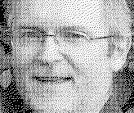From an op-ed by Barbara Ehrenreich in the New York Times, which examines the moral and social impact of ordinances against the publicly poor. The op-ed is based on a new study from the National Law Center on Homelessness and Poverty which found that the number of ordinances against the "publicly poor" are rising. More American cities, according to the report, are enacting and enforcing laws against "the indigent."
"How do you know when someone is indigent? As a Las Vegas statute puts it, "An indigent person is a person whom a reasonable ordinary person would believe to be entitled to apply for or receive" public assistance.
That could be me before the blow-drying and eyeliner, and it's definitely Al Szekely at any time of day. A grizzled 62-year-old, he inhabits a wheelchair and is often found on G Street in Washington -- the city that is ultimately responsible for the bullet he took in the spine in Fu Bai, Vietnam, in 1972. He had been enjoying the luxury of an indoor bed until last December, when the police swept through the shelter in the middle of the night looking for men with outstanding warrants.
It turned out that Mr. Szekely, who is an ordained minister and does not drink, do drugs or curse in front of ladies, did indeed have a warrant -- for not appearing in court to face a charge of "criminal trespassing" (for sleeping on a sidewalk in a Washington suburb). So he was dragged out of the shelter and put in jail. "Can you imagine?" asked Eric Sheptock, the homeless advocate (himself a shelter resident) who introduced me to Mr. Szekely. "They arrested a homeless man in a shelter for being homeless."
Full story
HERE
MY NEW BLOG IS UP NOW!
8 years ago


No comments:
Post a Comment